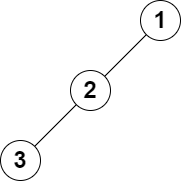We define the conversion array conver of an array arr as follows:
conver[i] = arr[i] + max(arr[0..i])wheremax(arr[0..i])is the maximum value ofarr[j]over0 <= j <= i.
We also define the score of an array arr as the sum of the values of the conversion array of arr.
Given a 0-indexed integer array nums of length n, return an array ans of length n where ans[i] is the score of the prefix nums[0..i].
Example 1:
Input: nums = [2,3,7,5,10] Output: [4,10,24,36,56] Explanation: For the prefix [2], the conversion array is [4] hence the score is 4 For the prefix [2, 3], the conversion array is [4, 6] hence the score is 10 For the prefix [2, 3, 7], the conversion array is [4, 6, 14] hence the score is 24 For the prefix [2, 3, 7, 5], the conversion array is [4, 6, 14, 12] hence the score is 36 For the prefix [2, 3, 7, 5, 10], the conversion array is [4, 6, 14, 12, 20] hence the score is 56
Example 2:
Input: nums = [1,1,2,4,8,16] Output: [2,4,8,16,32,64] Explanation: For the prefix [1], the conversion array is [2] hence the score is 2 For the prefix [1, 1], the conversion array is [2, 2] hence the score is 4 For the prefix [1, 1, 2], the conversion array is [2, 2, 4] hence the score is 8 For the prefix [1, 1, 2, 4], the conversion array is [2, 2, 4, 8] hence the score is 16 For the prefix [1, 1, 2, 4, 8], the conversion array is [2, 2, 4, 8, 16] hence the score is 32 For the prefix [1, 1, 2, 4, 8, 16], the conversion array is [2, 2, 4, 8, 16, 32] hence the score is 64
Constraints:
1 <= nums.length <= 1051 <= nums[i] <= 109
Solution: Prefix Sum
Time complexity: O(n)
Space complexity: O(1)
C++
|
1 2 3 4 5 6 7 8 9 10 11 12 |
// Author: Huahua class Solution { public: vector<long long> findPrefixScore(vector<int>& nums) { vector<long long> ans(nums.size()); for (int i = 0, m = 0; i < nums.size(); ++i) { m = max(m, nums[i]); ans[i] = (i ? ans[i - 1] : 0) + nums[i] + m; } return ans; } }; |

